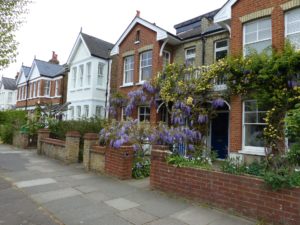Extending the lease on a house
Although extending the lease of a leasehold house is perfectly possible (under the Leasehold Reform Act 1967), unsurprisingly this particular right is hardly ever used – for the simple reason that buying the freehold of a house (a process often referred to as enfranchisement) is usually much more attractive.
And you may be surprised to find out how many leasehold houses there are still nationwide. More than seven million homes in England are on a leasehold basis, according to a 2019 government report titled “Estimating the number of leasehold dwellings in England”. This means that almost 7% of all houses are not owned freehold but rather on a temporary tenancy agreement between a landlord and tenant.
Got a question about the Buying the Freehold of your House? very few solicitors have expertise in this area. We do.
Call our specialist solicitors on FREEPHONE 0800 1404544 for FREE initial phone advice.
Why is the lease extension of a house so unusual?
There are broadly 5 reasons;
- Unlike extending the lease on a flat, the formal or statutory lease extension of a house increases the term of the existing lease by only 50 years – instead of 90 years
- The most common problems associated with jointly buying the freehold of a residential leasehold block (i.e. getting a sufficient number of leaseholders to participate in the freehold purchase process, and working with those leaseholders in managing the building subsequently) simply don’t apply when you exercise your right to buy the freehold of a house – for the simple reason that there will only be one leaseholder, although of course you might jointly own the lease with a spouse or other family member.
- Not every leasehold house is eligible for lease extension – the house itself must fall within certain rateable values and needs to satisfy a low rent test
- Unlike the lease extension of a residential flat (where a leaseholder retains the right to compel the freeholder to grant a further lease extension), a leaseholder does not have the right to extend the lease on a house on the second occasion – but can buy the freehold
- The total cost of buying the freehold of a house (once you include the premium, and any legal or valuation costs incurred by both the leaseholder and freeholder) is often little more than the cost of extending the lease by a mere 50 years.
And that’s why the vast majority of long leaseholders, once they realise why freehold purchase is so much more attractive, go down that route.
Find out more about how to buy the freehold of your house
Simply click here to visit the page on our website about buying the freehold of your leasehold house
My House – buying my freehold or extending my lease – Is my lease eligible?
In short, the right to buy your freehold is only available if your lease must was originally granted for a term of at least 21 years – which is often referred to as “long leasehold”. So the right to buy your freehold doesn’t apply if you only have say a monthly or yearly tenancy.
The importance of having the right valuation
Whether you are looking to buy your house’s freehold or extend its lease, getting the right valuation is essential. And it’s important to note that when the lease term drops below 80 years, an additional premium – known as “marriage value” – must be paid. To avoid additional costs, it’s important to start the process of buying your freehold or extending the lease on your house before this point!
Your House – freehold purchase or lease extension – we can help
Whether you own the lease on a long leasehold house and are looking to extend the lease or buy the freehold, our specialist team can help.
The team does nothing but freehold purchase and lease extension work for both freeholder and leaseholder clients throughout England and Wales.
- What’s more, we offer free initial phone advice – so why not call us today on FREEPHONE 0800 1404544.
- OR email us using the contact form below
